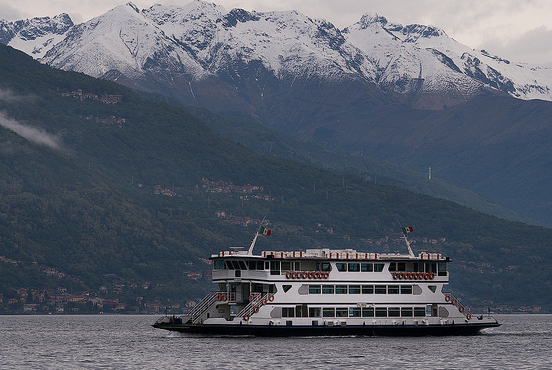
The beat
Copy-catting in Jakarta?
By now, we’re all familiar with Philippines president Rodrigo Duterte’s harsh crackdown on drug pushers, which has left thousands of alleged drug dealers and users dead since last year. Now that model seems to have spread to the south, with Indonesian president Joko Widodo publicly encouraging law enforcement to shoot drug dealers, claiming the country is in a ‘narcotics emergency position’. It’s a significant turn; last week he was praised for his progress on the anti-corruption agenda.
Make politics, not war
A slightly different picture on the other side of the Pacific: rather than rallying people to arms, FARC (the former guerilla group) announced that it would join the political stage by founding its own party. The historic peace deal last year, which ended half a century of conflict in Colombia, was a sign that the rebels wanted to ‘abandon bullets to have words as the only weapon’, according to FARC chief negotiator Ivan Marquez.
Betting and losing in China
The Shanghai office of Australian brokerage firm Union Standard Group Forex was the scene of a five-day hostage situation, which was finally resolved by local police on Monday. A group of investors had entered the office, threatening to use violence, after allegedly losing more than $3 million in currency trades. It’s just another example of ‘flaring tension in China’s financial system’.
CT scan
Marawi: the Mosul of the Pacific
The continuing crisis in the Philippine city of Marawi ‘is likely to have long-term repercussions for extremism in Southeast Asia’, according to a report (PDF) from the Institute for Policy Analysis. ISIS-funded fighters seized the southern city on 23 May and have held it since, despite the Philippine army’s efforts to dislodge them. The success of the Marawi fighters has encouraged other would-be terrorists in the region, and regional radicalisation is on the rise. The study identifies Indonesia and Malaysia as being of particular concern. Malaysia and other regional states are aiding the Philippine government, though cooperation is hindered by inter-governmental mistrust.
Who’s next?
In the era of ISIS, al-Qaeda has struggled to attract the support that it had in the past. Concerted US campaigns against al-Qaeda have left the group significantly weakened, but not defeated. In response, al-Qaeda has modified its approach to be less centralised and more durable. The group is likely to use the territorial defeat of ISIS to ‘reclaim its role as a leader among terrorist organisations’. To combat this threat, counterterrorism strategies will have to look beyond ISIS to groups that will vie to take its place.
Checkpoint
China digs deep
Earlier this week, the Wall Street Journal reported that China is reinforcing its shared border with North Korea, amid fears of US military action. The report revealed that China has dug several bunkers in case of chemical or nuclear explosions, has set up video surveillance supported by drones, and has maintained a constant military presence along the 1,415-kilometre border.
Australia and Malaysia unite for Redback VIII
The Australian Border Force took part in Operation Redback VIII with the Malaysian Coast Guard last week, with both countries seeking to increase maritime security. The seven-day joint operation off the Malaysian coast focused on improving defence against human trafficking and people smuggling, which ABF commander Chris Waters said was part of a ‘multilayered approach to protecting Australia’s borders’.
Italy gets tough on migration woes
The Italian prime minister, Paolo Gentiloni, has responded with force to Austrian foreign minister Sebastian Kurz regarding Europe’s migration crisis. Earlier this month, Vienna threatened to send in army personnel if Italy didn’t halt the ferry services between Italian islands and the Italian mainland to prevent the passage of illegal migrants. Gentiloni responded by warning, ‘We shall not accept lessons and still less threats such as those we have heard from our neighbours in recent days.’
First responder
Extreme heat
Climate change is killing us right now, according to a report by New Republic’s Emily Atkin. The piece extensively covers the increased occurrence of extreme heat events and heat-related deaths affecting the world right now. Whether we like it or not, the weather is demanding international attention as a serious security challenge. Researchers estimate that around 48% of humanity will be exposed regularly to deadly heat by 2100.
Yemen in crisis
The ongoing Yemeni crisis has been largely neglected by the international community, despite the extreme human cost. The International Committee of the Red Cross and Oxfam have sounded the humanitarian alarm as the rainy season approaches and cholera continues to spread. The number of suspected cholera cases in Yemen is projected to rise to over 600,000 by the end of 2017. Oxfam is calling for an immediate ceasefire in the region.
Reconstruction
Remember the flooded Cornish town from last week’s wrap? The cost of repairs to Coverack has been estimated at over £1 million. The UK has an interesting history of dealing with extreme storms: in 1866, the Met Office stopped publishing storm warnings, claiming that they were ‘unscientific’. Of course, when sailors stayed in port, shipowners lost money. Luckily that policy only lasted two years; in 1868, the Met Office started supplying storm warnings once again—to the delight of meteorologists and sailors alike.